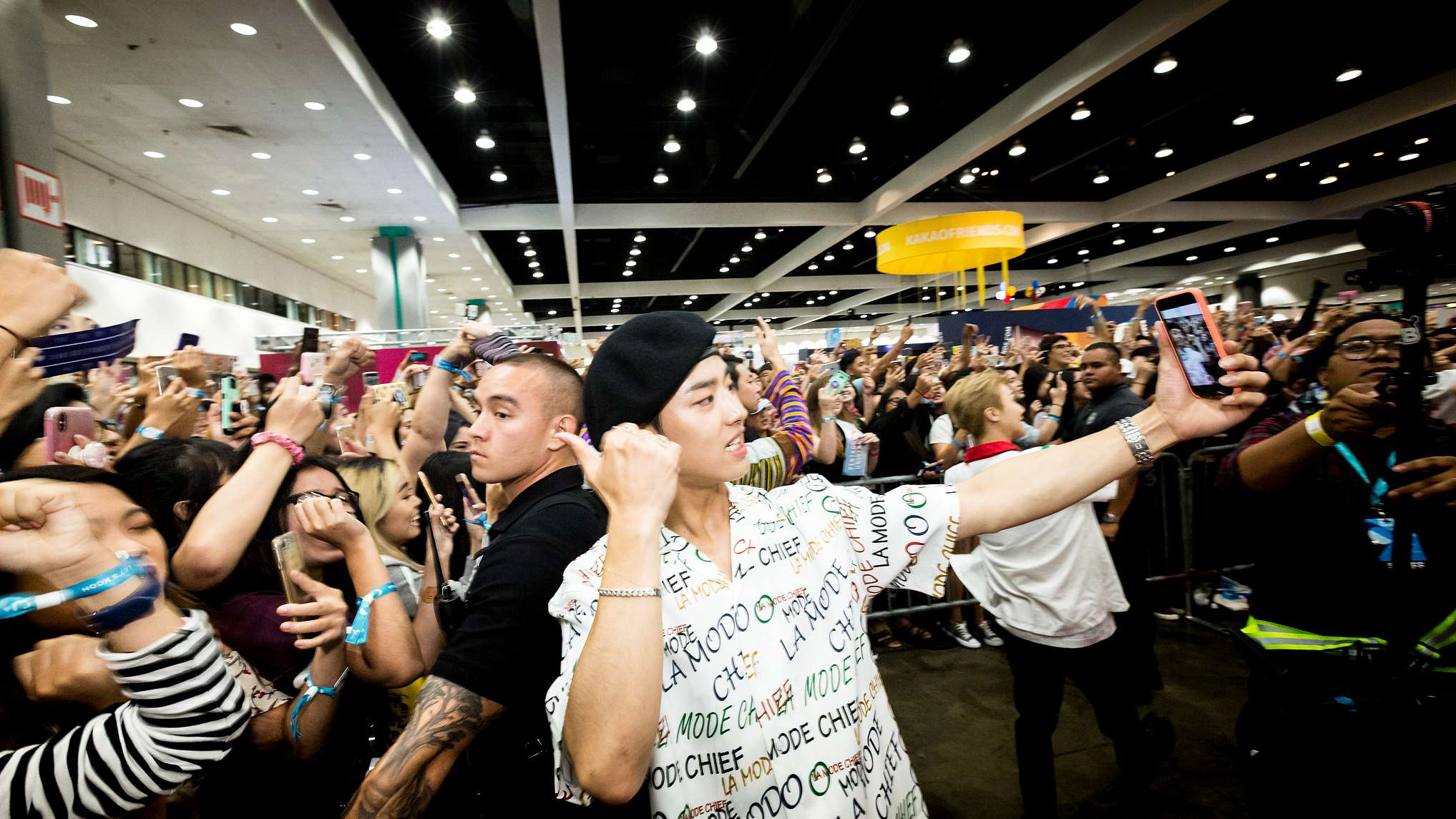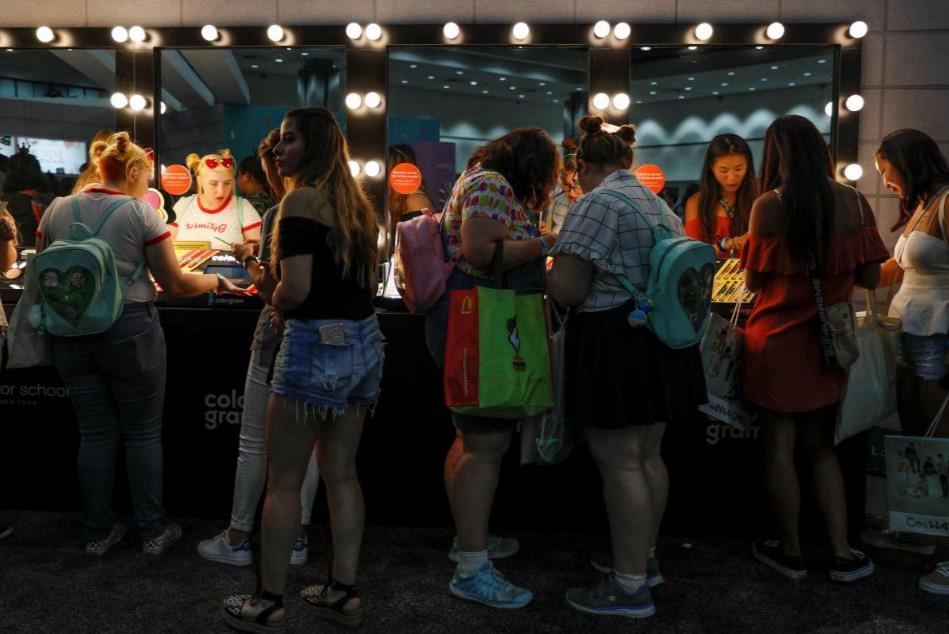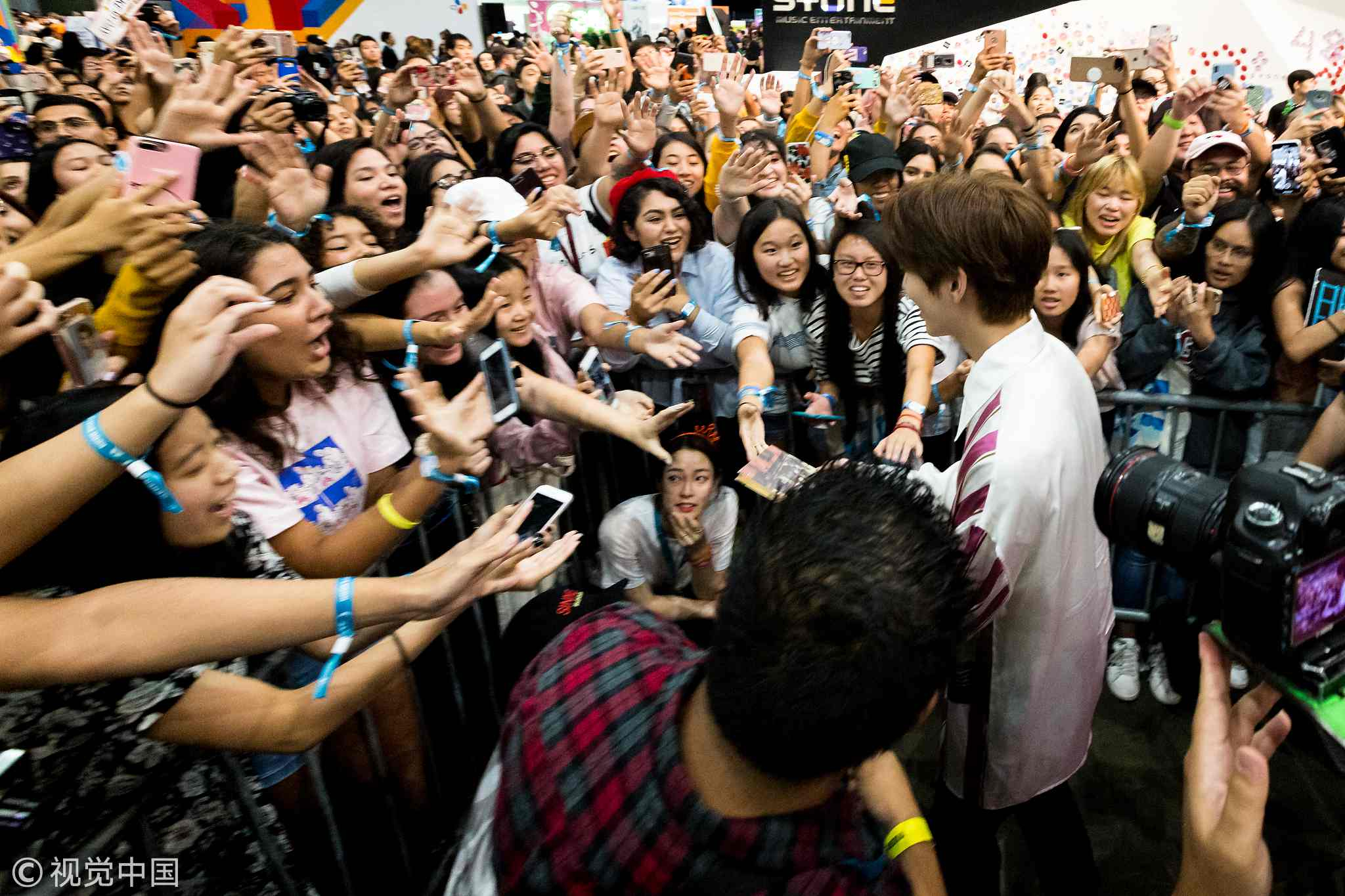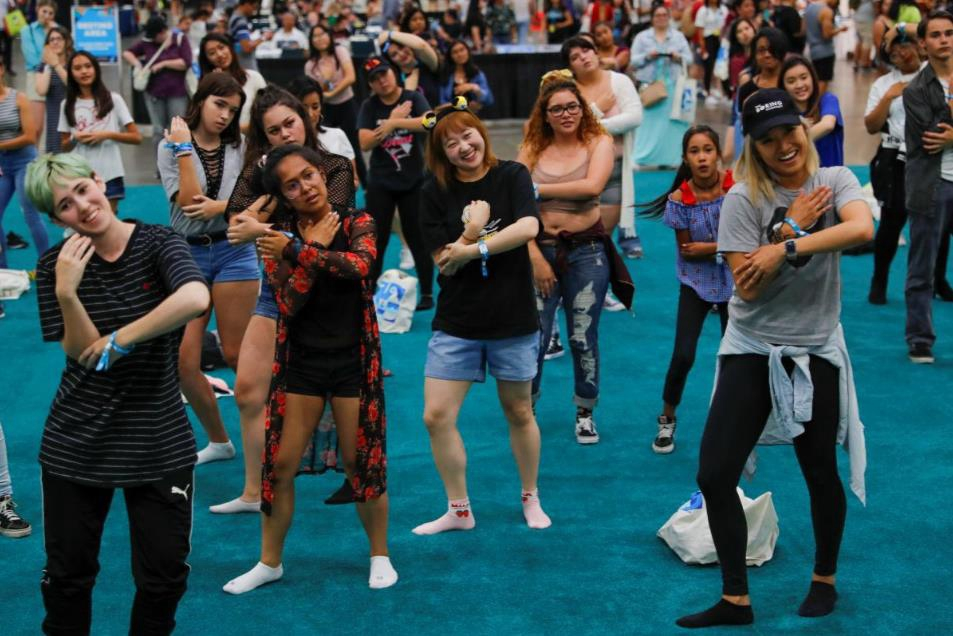
Culture
10:02, 14-Aug-2018
Korean-American stars see hope in K-pop
Updated
09:12, 17-Aug-2018
CGTN

Remember “Gangnam Style?”
That 2012 viral video hit by rapper Psy gave many Americans their first taste of Korean pop and tens of thousands of its fans gathered last weekend at a convention in Los Angeles at a time when a boy band’s success in America is giving new hope to K-pop stars.
Several Korean-Americans were among the performers at the seventh annual KCON, an event for all things tied to “Hallyu,” or the “Korean Wave” of popular culture.

Attendees test make-up at KCON US, the world's largest K-pop cultural convention and music festival. /Reuters Photo
Attendees test make-up at KCON US, the world's largest K-pop cultural convention and music festival. /Reuters Photo
This year, another Korean act’s growing fan base in the United States has K-pop stars, including some who grew up in America, thinking they too could win fame in the United States.
In June, the boy band BTS became the first K-pop group to top the Billboard 200 album chart, with “Love Yourself: Tear.”
“We K-pop artists are really proud of them because we know how hard it is to make it in the industry,” Ailee, a US-born K-pop star whose given name is Yejin Lee, said in a phone interview.
“The fact that they opened up those doors and cleared the way for us, it’s a huge hope for us,” said Ailee, who was performing at KCON this weekend.

Featured Artist "Pentagon" attend a Photo Op at KCON 2018 LA at Los Angeles Convention Center. /VCG Photo
Featured Artist "Pentagon" attend a Photo Op at KCON 2018 LA at Los Angeles Convention Center. /VCG Photo
Ailee, whose hit singles include “U & I” and “Heaven,” went to high school in New Jersey and grew up listening to Beyonce and Mariah Carey, all while consuming a steady diet of movies and television shows from South Korea.
Ailee, 29, said that years ago when she was trying to find a career in the US entertainment industry, she was told fans would not want to emulate someone like her.
“They told me it’s difficult for people who are Caucasian or black or Latino to feel that way toward an Asian person,” said Ailee, who declined to say which US entertainment companies turned her down.
Ailee moved to South Korea nearly a decade ago and was signed by an entertainment company there.
Several other Korean-American performers have also turned to K-pop as their path to music careers. They include several past winners of televised singing competitions in South Korea, as well as members of the groups Girls Generation and Seventeen.

Fans learn dance moves at the KCON event. /Reuters Photo
Fans learn dance moves at the KCON event. /Reuters Photo
K-pop acts sing or rap in Korean, often with snippets of English. On the Web, where K-pop fandom thrives, many music videos include subtitles.
But language was no barrier at KCON, even though most attendees were not of Korean descent.
Attendance at this year’s event in Los Angeles, which has one of the largest Korean diaspora communities, was expected to exceed the 85,000 who attended last year, organizers said.
This year, people of all ethnicities danced in unison to K-pop songs at a “dance workshop,” posed for photos with giant emoticons and tried on traditional Korean robes.
Source(s): Reuters

SITEMAP
Copyright © 2018 CGTN. Beijing ICP prepared NO.16065310-3
Copyright © 2018 CGTN. Beijing ICP prepared NO.16065310-3